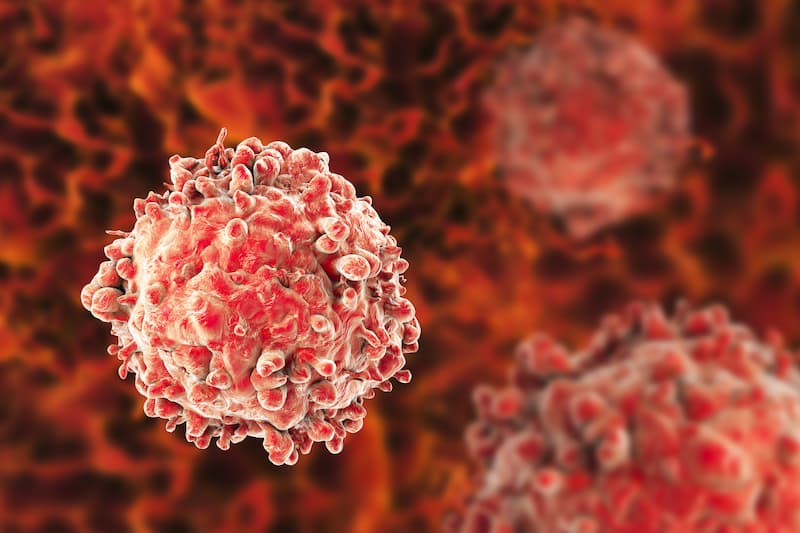ZEN-3694 Earns FDA Fast Track Designation in Metastatic NUT Carcinoma
Investigators are evaluating ZEN-3694 in combination with abemaciclib or cisplatin/etoposide across 2 clinical trials in NUT carcinoma.
By disrupting the NUT fusion protein’s activity, ZEN-3694 may demonstrate efficacy in patients with NUT carcinoma when administered as a single agent or as part of a combination regimen.

The FDA has granted fast track designation to ZEN-3694, an investigational BET inhibitor, in combination with abemaciclib (Verzenio) as a treatment for patients with unresectable or metastatic NUT carcinoma previously treated with at least 1 prior line of chemotherapy, according to a press release from the developer, Zenith Epigenetics.1
The press release noted that NUT carcinoma is a highly aggressive cancer type that may occur among adults and children in the midline area of the body, which includes the head, neck, and thoracic areas. There are approximately 10,000 cases of diagnosed NUT carcinoma per year. Based on increasing diagnoses, a lack of approved therapies, and a median overall survival (OS) of approximately 6 months, developers highlighted a significant unmet need for novel therapeutic strategies for NUT carcinoma.
Developers designed ZEN-3694 as an orally available agent for chronic administration. Among patients with NUT carcinoma, the NUTM1 gene is fused with a transcriptional regulator, typically a BET protein, driving expression of cancer-causing genes that facilitate unchecked tumor growth. By disrupting the NUT fusion protein’s activity, ZEN-3694 may demonstrate efficacy in patients with NUT carcinoma when administered as a single agent or as part of a combination regimen.
“We are thrilled that the FDA has recognized the strong potential of ZEN-3694 in benefiting patients with NUT carcinoma, an extremely aggressive, deadly cancer, for which there are no effective or approved treatments,” Donald McCaffrey, president and chief executive officer of Zenith Epigenetics, stated in the press release.1 “Fast track designation will accelerate ZEN-3694's clinical NUT carcinoma program by expediting its development and review, and allow us to deliver this potentially life-saving drug to patients sooner.”
Investigators are currently evaluating ZEN-3694 as a treatment for patients with NUT carcinoma across 2 clinical trials. In a phase 1 trial (NCT05372640), investigators are assessing ZEN-3694 plus abemaciclib for this patient population. Additionally, patients enrolled on a phase 1/2 trial (NCT05019716) will receive ZEN-3694 in combination with etoposide and carboplatin.
Phase 1 Trial
In the phase 1 study, an estimated enrollment of 30 patients will receive ZEN-3694 orally once daily on days 1 to 28 or for 5 days on and 2 days off plus abemaciclib orally twice daily on days 1 to 28 of each cycle.2 The study treatment will continue until disease progression or unacceptable toxicity.
The study’s primary end points include the maximum tolerated dose, incidence of adverse effects (AEs), overall response rate (ORR), clinical benefit rate, duration of response (DOR), time to response, OS, and progression-free survival (PFS) in the phase 1 dose-expansion portion. Secondary end points include the pharmacokinetics and thymidine kinase.
Patients 12 years and older with a histologically confirmed metastatic or unresectable malignancy for which no standard curative or palliative measures exist and measurable disease per RECIST v1.1 criteria are eligible to enroll on the trial. Those with prior surgical resection are eligible for enrollment.
Phase 1/2 Trial
In the phase 1/2 study, an estimated population of 55 patients will receive ZEN-3694 orally once or twice daily on days 1 to 14 or days 1 to 21 of each cycle depending on the dosage assignment.3 Additionally, patients will receive etoposide intravenously on days 1 to 3 for cycles 1 to 4 or up to 8 cycles plus cisplatin intravenously on day 1 of cycles 1 to 4 or up to 8 cycles. Study treatment will continue every 21 days unless progressive disease or unacceptable toxicity occurs.
The trial’s primary end points include the maximum tolerated dose in phase 1 as well as ORR in phase 2. Secondary end points include DOR, PFS, OS, and the incidence of AEs.
Patients 12 years and older with a diagnosis of NUT carcinoma based on standard disease criteria with diagnosis performed in a Clinical Laboratory Improvement Act (CLIA)–certified laboratory are eligible for enrollment on the trial.
References
- FDA grants Zenith’s ZEN-3694 fast track status. News release. Zenith Epigenetics Ltd. July 14, 2025. Accessed July 15, 2025. https://tinyurl.com/yb8764k6
- Testing the safety and efficacy of the combination of two anti-cancer drugs, ZEN003694 and abemaciclib, for adult and pediatric patients (12-17 years) with metastatic or unresectable NUT carcinoma, breast cancer and other solid tumors. ClinicalTrials.gov. Updated April 9, 2025. Accessed July 15, 2025. https://clinicaltrials.gov/study/NCT05372640
- Testing the safety and efficacy of the addition of a new anti-cancer drug, ZEN003694, to chemotherapy treatment (etoposide and cisplatin) for adult and pediatric patients (12-17 years) with NUT carcinoma. ClinicalTrials.gov. Updated May 31, 2025. Accessed July 15, 2025. https://tinyurl.com/bp6xe6wz
How Supportive Care Methods Can Improve Oncology Outcomes
Experts discussed supportive care and why it should be integrated into standard oncology care.